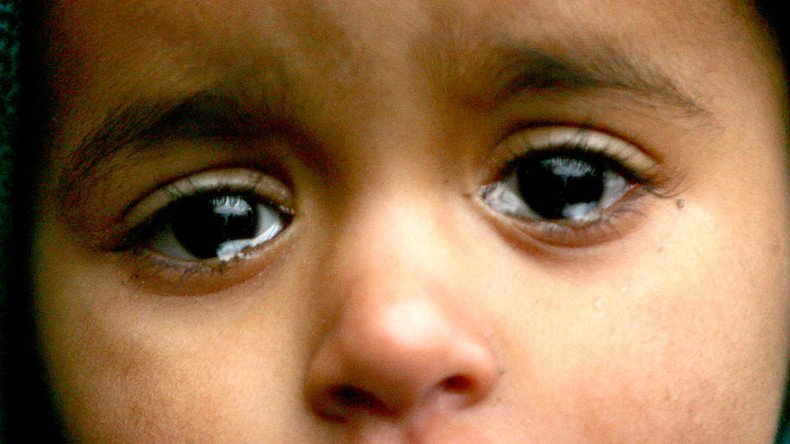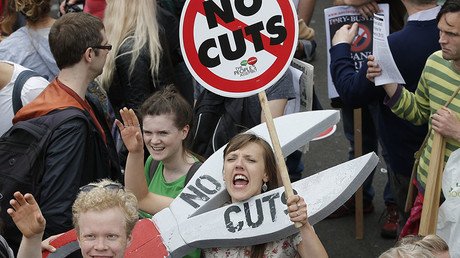Breadline Britain: Rising malnutrition & death linked to low wages, welfare cuts

Foodbank use has risen to record highs in the UK, with over a million three-day emergency food supplies being handed out by the Trussell Trust charity last year. Government figures also indicate a shocking rise in deaths linked to malnutrition.
The charity’s latest figures point to delays and changes to benefits as the biggest causes of foodbank use by those relying on its 424 centers across the UK.
Low incomes, insecure work, high living costs and problems accessing in-work benefits are all leading to a rise in working people being referred to food charities, according to the Trussell Trust’s latest data.
Care professionals such as doctors, teachers and social workers identify people in crisis and issue them with foodbank vouchers for non-perishable food, which is donated to centers across the country by members of the public.
David McAuley, Chief Executive of the Trussell Trust, insisted the situation “must not become the new normal.”
“Today’s figures on national foodbank use prove that the numbers of people hitting a crisis where they cannot afford to buy food are still far too high. One million three-day food supplies given out by our foodbanks every year is one million too many,” McAuley said.
Datamapping by the University of Hull, where researchers collaborated with the Trussell Trust, suggests foodbank use is highest in areas where there are larger numbers of people unable to work due to long-term sickness or disability, or those in skilled manual work.
However, the true scale of hunger in the UK could be much greater than the data indicates. A separate report by the All Party Parliamentary Group (APPG) on Hunger, also released on Friday, estimates more than half of the emergency food aid supplied to families in crisis comes from independent foodbanks and organizations not on the Trussell Trust’s radar.
Further compounding this grim picture, a report by the National Child Measurement Program for England shows that thousands of children in England started school underweight last year.
This is backed up by the Trussell Trust figures, which state that of the 1,109,309 three-day emergency food supplies provided to people in crisis last year, 415,866 went to children.
The spread of hunger correlates with the rising number of cases in England in which malnutrition was mentioned as an underlying cause of death. These have risen from 58 cases in 2005 to 73 cases in 2014, according to figures from the Office for National Statistics.
Cases where the effects of hunger and malnutrition were mentioned on the death certificate have also risen sharply, from 255 cases in 2005 to 375 cases in 2014.
Six years of harsh fiscal measures have driven thousands of people to gather for an anti-austerity protest in London’s Trafalgar Square this Saturday. The national demonstration has been organized by the People’s Assembly against Austerity, in response to ongoing austerity measures and recent revelations about offshore investment funds linked to Prime Minister David Cameron’s family.
“David Cameron’s stake in his father’s off shore tax haven, prove that this is a government for the privileged few, not for the majority. This shows beyond all doubt that Cameron is divorced from the life of any working person,” the organizers said.














